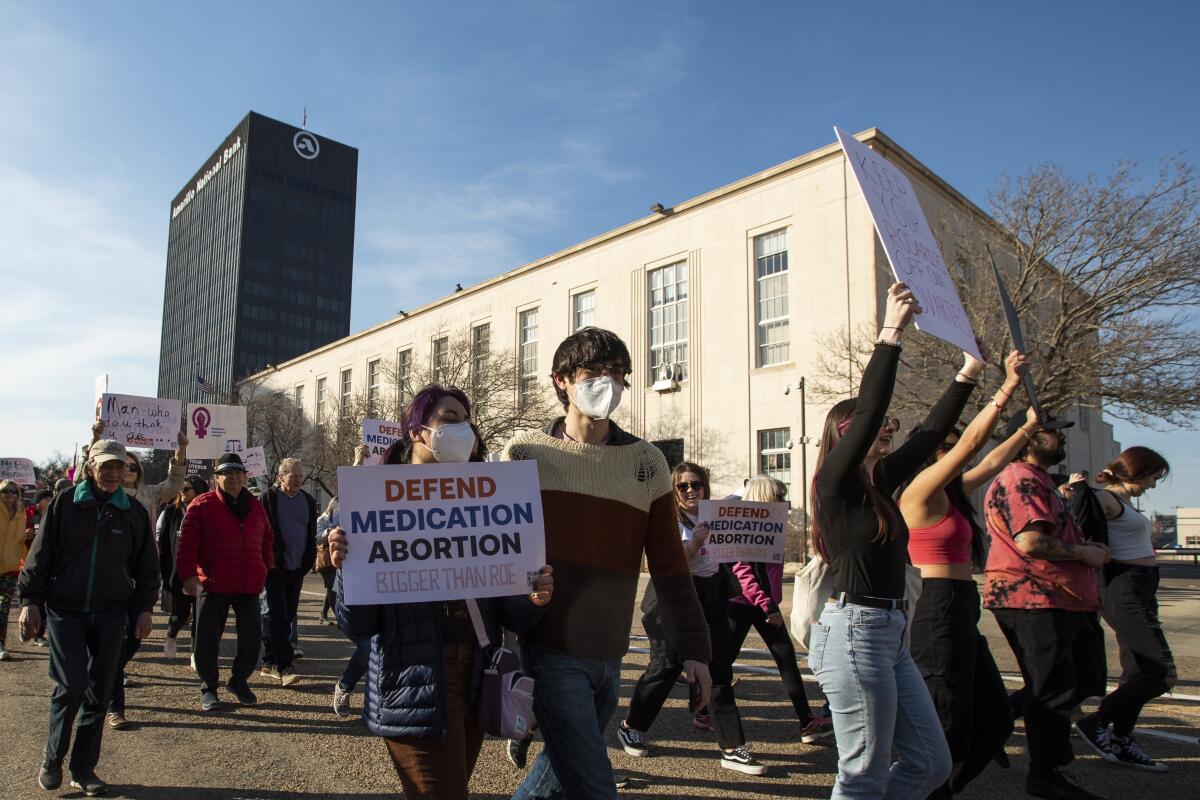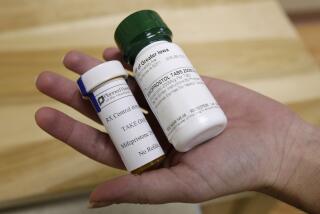Why you’ve never heard of the company behind the abortion pill

As far as drug companies go, abortion pill maker Danco Laboratories is all but anonymous. It has fewer than 20 employees, uses a P.O. Box to avoid sharing its headquarters address and isn’t listed on any public exchanges.
Now its sole product, the abortion pill mifepristone, has been thrust into the national spotlight after a federal judge in Texas ruled that the U.S. Food and Drug Administration shouldn’t have approved it more than two decades ago.
An appeals court said Wednesday the pill can stay on the market with extensive restrictions while it reviews the decision, but that’s hardly a win for Danco. The legal battles are ongoing, and the consequences could be severe.
A ban on the pill would mean the end of Danco’s revenue because mifepristone is all it makes, according to an April 9 court filing.
“Because Danco has only a single pharmaceutical product, if Danco is prevented from distributing its product, that will result in the effective closure of our business because Danco would no longer be generating any revenue,” the statement said.
Gov. Gavin Newsom announced a stockpile of 2 million abortion pills known as misoprostol after a Texas judge ruled against using a mifepristone, another medication to terminate pregnancies.
The drugmaker doesn’t make any of its sales figures public.
All of the secrecy around Danco exists because of fear about what antiabortion activists might do.
The company’s leadership decided long ago that they would keep its management and structure private due to security and harassment concerns. Danco doesn’t share information about its location to be “mindful of the safety, privacy and security of the people who work for the company, as well as anybody else who happens to be in the same building,” Abby Long, Danco’s director of marketing and public affairs, said in an interview.
The concern isn’t far-fetched. Since 1977, there have been 11 murders and thousands of criminal incidents directed at abortion patients, providers and volunteers, according to the National Abortion Federation, which has been compiling such statistics for more than four decades.
Operating in obscurity isn’t straightforward. Danco has had to work closely with the FDA to not disclose its address. When it came to the 2000 approval of mifepristone, the agency took additional steps to protect the people involved. All of the documents related to the approval have been redacted so government employee names and manufacturer locations don’t become available to the public.
The American Medical Assn. offers an object lesson in how staying on the sidelines in the abortion debate can cost a profession part of its autonomy.
“The agency has determined that release of certain information may pose a risk of danger to the lives or physical safety of individuals,” according to the FDA website. An FDA spokesperson declined to comment on whether this was the first time the agency had taken such an action.
“Everybody at FDA, anyone who touches it on either our side or FDA side, with the exception of a few people like myself, their information is kept private,” Danco’s Long said of those involved with government dealings around mifepristone.
Controversy has followed the abortion pill since it was developed in the 1980s by the French pharmaceutical company Roussel Uclaf. Just weeks after French regulators cleared the drug for use, antiabortion protesters successfully pressured the drug’s maker to halt its distribution. The French government intervened and put it back on the market.
It would take years for the drug to be available to Americans. After pressure from advocacy groups and the Clinton administration, the reproductive-health nonprofit Population Council secured the rights in 1994 to market the drug in the U.S.
The Population Council then looked for a company to sell the pill, a search that ended when Danco was formed to distribute the medication.
Even the FDA’s approval of the drug was done in such a way that would protect those involved from any potential violence. The FDA approval meeting was held in an obscure place in Maryland that looked like a garage, surrounded by security. “That tells you everything you need to know right there about what the hurdles were,” said Gloria Feldt, who was president of Planned Parenthood at the time of mifepristone’s approval.
Due to security concerns, Danco wouldn’t share the name of the company’s current chief executive, board members or investors.
“Not being able to be transparent in that way sets up a whole other kind of impression that people start to get,” Long said. “But at the same time we don’t want to be harassed.”
More to Read
Inside the business of entertainment
The Wide Shot brings you news, analysis and insights on everything from streaming wars to production — and what it all means for the future.
You may occasionally receive promotional content from the Los Angeles Times.












